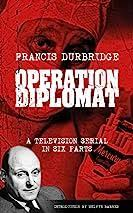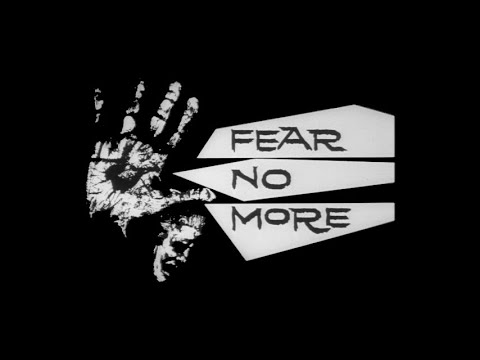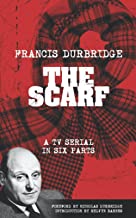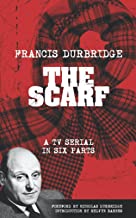My enthusiasm for Francis Durbridge dates back to my school days - I was just eleven when I saw Bat Out of Hell on TV, and loved it. That serial starred John Thaw, long before he became Inspector Morse. Later, I enjoyed reading books about the genre written by Melvyn Barnes, and although he and I have never met, I've been delighted to get to know him via cyberspace, and recently to learn about a very worthwhile project of his, Francis Durbridge: A CentenaryAppreciation. So I invited Melvyn to write a guest blog to share the news - and here it is:
"I
have never been a full-time writer, having spent my entire career as a chartered
librarian until retiring in 2002 after eighteen years as Director of Libraries
and Art Galleries for the City of London.
But crime fiction has been a lifetime interest, which led to part-time
writing and the publication of my books Best
Detective Fiction, Dick
Francis, and Murder in
Print, together with numerous contributions to magazines and
reference books such as Twentieth Century
Crime and Mystery Writers, The Oxford
Companion to Crime and Mystery Writers and Scribner’s Mystery and Suspense Writers.
As
a youngster during the “wireless” years I was captivated by the Francis Durbridge
serials featuring Paul Temple, and later by his television serials that in
their day attracted record viewing figures.
So much so, that well into retirement I decided it was time to take up
the pen again and fill a gap by producing a unique account of Durbridge’s work.
It
proved to be an unexpectedly complex and lengthy process, requiring several
years’ research including many sessions at the British Library, the (late
lamented) Newspaper Library in Colindale and the BBC Written Archives Centre at
Caversham. This provided countless details
about Durbridge’s twenty-eight Paul Temple radio serials and plays from 1938 to
1968, his seventeen television serials from 1952 to 1980, his thirty-five
novels from 1938 to 1988 and his nine stage plays from 1971 onwards. Truly surprising, however, was the extent of his
other works – nine cinema films were made from his radio and television serials,
he wrote three novels as newspaper serials that were never published in book
form, two plays long before he was recognised as a stage dramatist, and a Paul
Temple comic strip for the London Evening
News which ran for over twenty years.
Most surprising of all was the revelation of his prolific output for the
radio, which not only included many non-criminous scripts but also non-Temple
plays and serials featuring other detectives, using his own name and three
pseudonyms.
This
long period of slogging research frequently led me from one reference to
another, with the final clinching of answers to previously unresolved questions. It not only informed my introductory survey
of Durbridge’s work, but it resulted in a comprehensive annotated listing of
his novels and all his other works – including the first full listing of his
Paul Temple comic strips. It also
enabled me to provide summaries of his plots (without spoilers, of course),
with production and cast details of his radio, television, stage and cinema
works. Another important achievement was
to show the links between them, to identify which were original and which were
re-writes. My ultimate satisfaction,
however, came from the unearthing of so much new information, and not least in
debunking the numerous errors that perpetuate on the Internet.
Francis
Durbridge died in 1998, but today he retains a substantial fan base and attracts
many new enthusiasts. His serials are regularly
repeated on Radio 4 Extra, re-creations of his “lost” serials have been
produced on Radio 4, his novels continue to be reprinted, and there is a
thriving trade in audiobooks, e-books and DVDs.
Although
my earlier books were commissioned by commercial publishers, this time I
decided to go it alone. A commercial
publisher would have required something more elaborate, probably with extensive
biographical material and the addition of illustrations (acquired at my own
expense), whereas I felt confident that I had already achieved all I set out to
do.
So
to order a signed copy of this 140 page paperback, post/packing included (UK
only), send a cheque for £10.99 (payable
to Melvyn Barnes) to 7 Netherhall Close, Old Newton, Stowmarket, Suffolk IP14
4RP. And for overseas orders, information
can be obtained by emailing melvyn.barnes@oldnewton.com "
I can only add that my copy arrived today and I'm enjoying reading it already.




